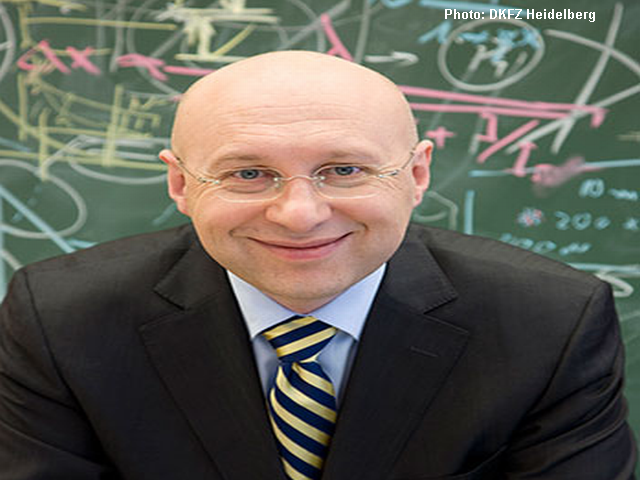Nobel for a Romanian-Born Scientist
The region of Banat, in southwestern Romania, is known as a model of multiculturalism and inter-ethnic communion

Ştefan Stoica, 10.10.2014, 13:51
Hertha Mueller and Stefan Hell: different generations, different professions and probably different sensibilities; the first, a writer, the second a man of science. The two, however, are linked by their ethnicity, as ethnic Germans born in the region of Banat, in southwestern Romania, and by the fact that they are both recipients of the Nobel Prize. Stefan Hell has just received the 2014 Nobel Prize in chemistry, alongside another two scientists, for outstanding accomplishments in the field of microscopy and super-resolution.
The three have managed to turn an optic microscope into a nano-scope, which allows the study of molecular processes in real time. Currently, nanoscopy is used on a wide scale and it provides the necessary instruments for the progress of medicine in the fight against cancer and other incurable diseases. In an interview to the public radio station, Stefan Hell said he was proud of his Romanian origin, although at the age of only 15 he and his family left Banat to settle in Western Germany. Stefan Hell:
“We emigrated from Banat, Romania, in 1978 and I stayed away for 34 years. Two or three years ago I went back to Banat with my family. It was nice to see again Arad and Santana, where I grew up. People would not understand me if they didn’t know I come from Romania.”
Stefan Hell says the Nobel Prize came after long years of research in Germany, first at Heidelberg University, then at the “Max Planck” institute for Chemistry and Biophysics in Gottingen, whose director he currently is. He believes that the education he got in the country was very good, that he had very good teachers, who fuelled his interest in and passion for science.
Hertha Muellers’ relationship with Romania was a little more complicated; actually it was not the relationship with the country as such, but with the communist authorities of the time. Born in 1953 in Nitchidorf, in the same region of Banat, the young and intransigent writer Hertha Mueller refused any collaboration with the political police, the Securitate, and as such became a victim of the regime. In 1987 she settled in West Berlin. She has published over 20 volumes, most of them translated into Romanian.
“In the face of death, my reaction was an unquenched thirst for life and words. It was only the whirl of words that would manage to express how I felt”, Hertha Mueller recalled in 2009, during the traditional reading session that precedes the awarding of the Nobel Prize. The distinction came as a reward for a prose depicting a picture of uprooting and otherness, which sublimates the trauma suffered during the communist regime, with all its interrogations, humiliation, marginalisation and fear of death. The author refuses to claim one country or one language, choosing to belong exclusively to herself. Hertha Muller admits, though, that she feels a certain a special connection with the Romanian language, in which metaphors are more sensual and more to the point.






























